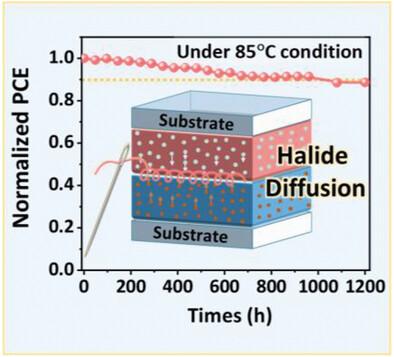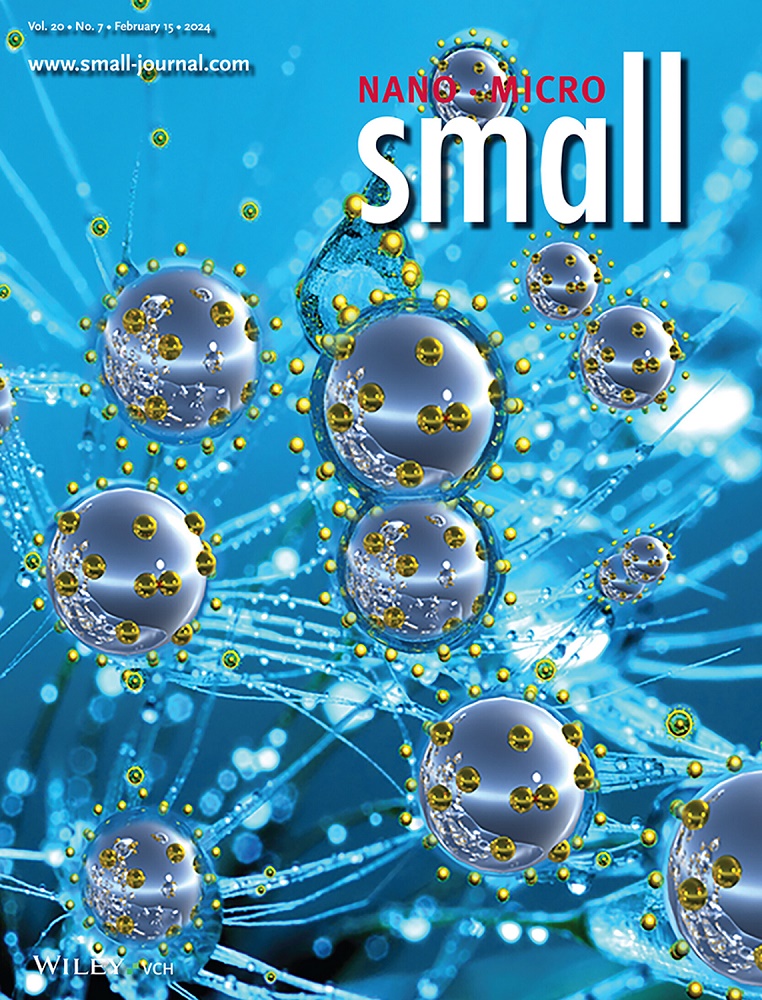Halide-Diffusion-Assisted Perovskite Lamination Process for Semitransparent Perovskite Solar Cells
IF 13
2区 材料科学
Q1 CHEMISTRY, MULTIDISCIPLINARY
引用次数: 0
Abstract
Semitransparent perovskite solar cells (PSCs) efficiently absorb light from both front and rear sides under illumination, and hence, PSCs have the potential for use in applications requiring bifacial or tandem solar cells. A facile method to fabricate semitransparent PSCs involves preparing a perovskite (PVSK) film on two transparent substrates and then laminating the substrates together. However, realizing high-performance laminated semitransparent PSCs is challenging because the imperfect contact at the PVSK interlayer results in void formation and partial degradation of PVSK. To address this issue, a halide-diffusion-assisted lamination (HDL) method is proposed. In the method, a controlled halide concentration gradient is used to effectively laminate the top and bottom PVSK layers. Semitransparent PSCs prepared through the HDL method (hereafter referred to as HDL-PSCs) exhibited a power conversion efficiency (PCE) of 18.93%. In particular, an HDL-PSC exhibited higher thermal stability, maintaining its initial PCE for over 1200 h at 85 °C.

用于半透明包晶太阳能电池的卤化物-扩散辅助包晶层压工艺
半透明的过氧化物太阳能电池(PSCs)在光照下能有效地吸收前后两面的光,因此,PSCs 有可能用于需要双面或串联太阳能电池的应用中。制造半透明 PSC 的简便方法是在两块透明基板上制备过氧化物硅酸盐(PVSK)薄膜,然后将基板层压在一起。然而,实现高性能层压半透明 PSC 极具挑战性,因为 PVSK 层间的不完全接触会导致空隙形成和 PVSK 的部分降解。为解决这一问题,我们提出了一种卤化物扩散辅助层压(HDL)方法。在该方法中,受控卤化物浓度梯度被用来有效地层压顶部和底部 PVSK 层。通过 HDL 方法制备的半透明 PSC(以下简称 HDL-PSC)的功率转换效率(PCE)达到了 18.93%。尤其是,HDL-PSC 具有更高的热稳定性,在 85 °C 下可保持其初始 PCE 超过 1200 小时。
本文章由计算机程序翻译,如有差异,请以英文原文为准。
求助全文
约1分钟内获得全文
求助全文
来源期刊

Small
工程技术-材料科学:综合
CiteScore
17.70
自引率
3.80%
发文量
1830
审稿时长
2.1 months
期刊介绍:
Small serves as an exceptional platform for both experimental and theoretical studies in fundamental and applied interdisciplinary research at the nano- and microscale. The journal offers a compelling mix of peer-reviewed Research Articles, Reviews, Perspectives, and Comments.
With a remarkable 2022 Journal Impact Factor of 13.3 (Journal Citation Reports from Clarivate Analytics, 2023), Small remains among the top multidisciplinary journals, covering a wide range of topics at the interface of materials science, chemistry, physics, engineering, medicine, and biology.
Small's readership includes biochemists, biologists, biomedical scientists, chemists, engineers, information technologists, materials scientists, physicists, and theoreticians alike.
 求助内容:
求助内容: 应助结果提醒方式:
应助结果提醒方式:


